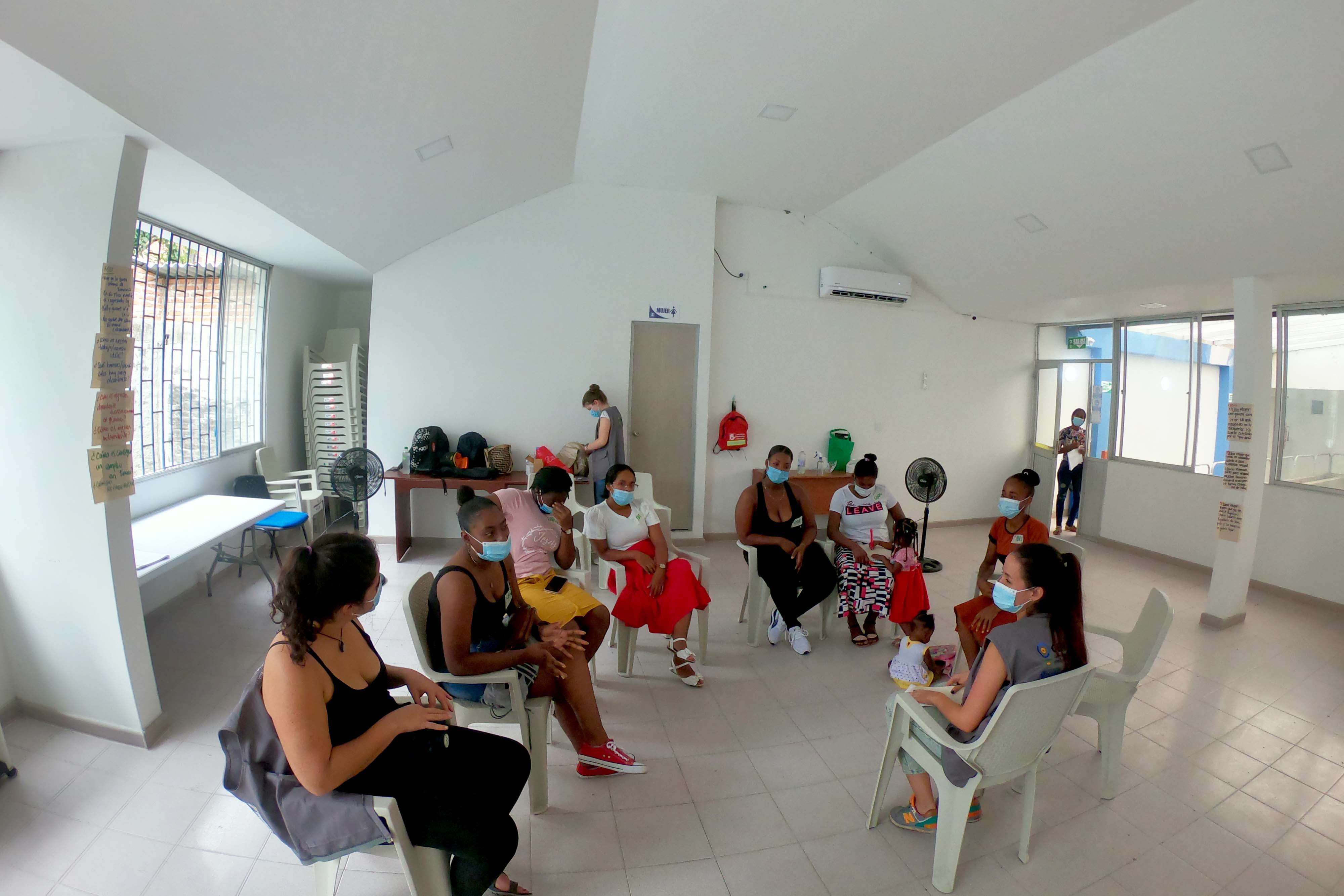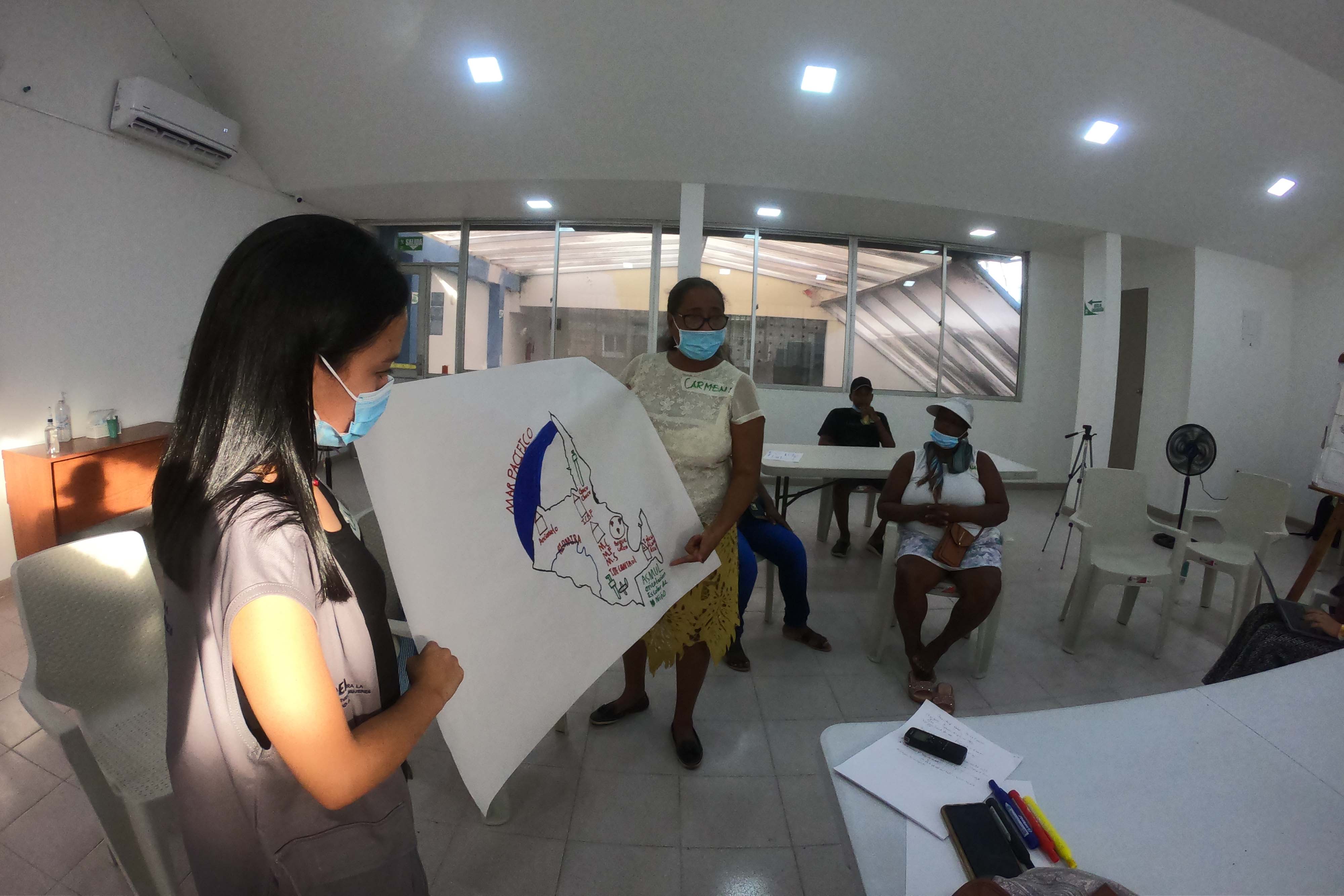Acute gender, economic, racial and political inequalities in Colombia are the focus of a new research project that forms part of an ongoing, international collaboration involving academics at Kent Law School.
The project, called ‘Life/Gender/Work: Invisibility and Social Reproduction in Tumaco’, is the second initiative from the team behind Ruptures21: Towards New Economies, Societies and Legalities. Ruptures21 is led by Kent Law School Reader in International Law, Dr Luis Eslava, with Professor Donatella Alessandrini a member of the project’s Academic and Research Committee.
The Ruptures21 team comprises academics from law schools who seek to advance new ways to understand and solve global issues. Other institutions involved include the University of Essex, the University of Warwick, and the Universities of Rosario, and Icesi in Colombia,
For their latest project, Ruptures21 is working in partnership with the Observatory of Women’s Equity (Observatorio para la Equidad de las Mujeres), the art collective ArtoArte, and Cordeagropaz (a local organisation in Tumaco, Colombia).
Dr Eslava said: ‘The Life/Gender/Work project confirms the immense value of inter-institutional, international and interdisciplinary academic initiatives developed in partnership with communities and grassroots organisations. These projects have the potential to expand our understanding of reality, especially of places and subjects in critical conditions, and to build in a collaborative manner innovative and much needed inputs that can help communities transform their worlds.’
The project will employ quantitative and qualitative research techniques to generate three reports on new economic citizenships, new sexual citizenships, and new territorial citizenships. A further project outcome will be a documentary film produced in collaboration with the community in Tumaco.
Dr Eslava said: ‘The final objective is to create new networks of collaboration and support that go from the most local to the international level, new sensibilities, and new ways of representing, intervening and supporting the construction of other futures.’
The first initiative from Ruptures21 was a project called ‘Informality in Times of COVID-19’. Bringing together a team of 24 researchers across Colombia and the UK, this project was supported by Kent’s Global Challenges Research Fund (GCRF) Emergency Response Fund along with funding from the University of Essex and the University of Warwick. Conducted in collaboration with the University of Rosario in 2020/21, the project’s outputs included the first comprehensive database on the informal economy in Colombia; a series of policy briefs, life histories and public art interventions; and a documentary exploring the impact of COVID-19 on informal workers. With the support of KMTV, the project also included a series of international outreach events to raise awareness about the conditions of informal workers in Colombia and similar countries during the pandemic.
Ruptures21 is part of a broader initiative called the IEL Collective, a community of scholars and practitioners exploring the multi-faceted ways in which law operates within the global economy. The IEL Collective is supported by academic institutions and research centres from around the world, including the Centre for Critical International Law (CeCIL) and Social Critiques of Law (SoCriL) at Kent. The IEL Collective has previously responded to the COVID-19 pandemic with a series of open access interventions, articles and interviews.
Image credits: ‘Life/Gender/Work’ project, Ruptures21/OEM/Cordeagropaz (Tumaco, October 2021)


